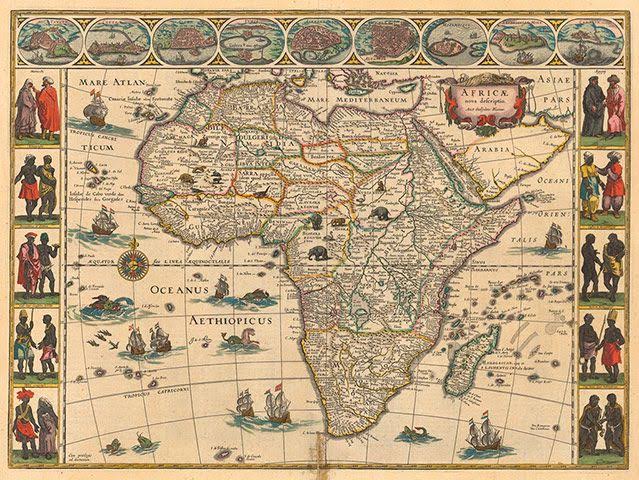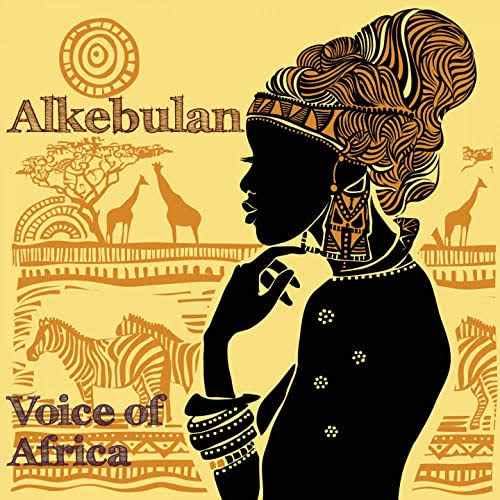
The ancient name of Africa was Alkebulan. Alkebu-lan “mother of mankind” or “garden of Eden”.” Alkebulan is the oldest and the only word of indigenous origin. It was used by the Moors, Nubians, Numidians, Khart-Haddans (Carthagenians), and Ethiopians. 

The word Africa came into existence in the late 17th Century, it was used to only refer to the northern part of the continent. Around that time, the Northern continent had been colonized, and the Europeans ruled over its people as slaves. 

They influenced the change of identity from Alkebulan to Africa. But Before the European settled for the word Africa, the continent was called many other names. They include Corphye, Ortegia, Libya, and Ethiopia. 

Other names such as the land of Ham (Ham means dark skins), mother of mankind, the garden of Eden, Kingdoms in the sky, and the land of cush or kesh (referring to the Cushites who were ancient Ethiopian) were used. 

Why is Africa called Africa?
There exist many theories explaining the origin of the name of this continent. At the time of writing, no one knows the source for sure. However, the theories below shed some light on how this second largest continent got its new name.
There exist many theories explaining the origin of the name of this continent. At the time of writing, no one knows the source for sure. However, the theories below shed some light on how this second largest continent got its new name.

Roman theory
Some scholars believe that the word originated from the Romans. Romans discovered a land opposite the Mediterranean and named it after the Berber tribe residing within the Carnage area, presently referred to as Tunisia. The tribe's name was Afri.
Some scholars believe that the word originated from the Romans. Romans discovered a land opposite the Mediterranean and named it after the Berber tribe residing within the Carnage area, presently referred to as Tunisia. The tribe's name was Afri.

Weather theory
Some believe that the name was coiled from the continent's climate. Deriving from aphrike, a Greek word that means a land free from cold and horror. A variation of the Roman word aprica, which means sunny, or even the Phoenician word afar, which means dust.
Some believe that the name was coiled from the continent's climate. Deriving from aphrike, a Greek word that means a land free from cold and horror. A variation of the Roman word aprica, which means sunny, or even the Phoenician word afar, which means dust.

Geographical theory
There is a suggestion that the name came far afield. It was brought by the Indian traders, who entered the continent through the Horn of Africa. In Hindi, the word apara means comes after. Geographically, this can be interpreted to mean a place to the west.
There is a suggestion that the name came far afield. It was brought by the Indian traders, who entered the continent through the Horn of Africa. In Hindi, the word apara means comes after. Geographically, this can be interpreted to mean a place to the west.

Africus Theory
This claims that the continent derived its name from Africus. Africus is a Yemenite chieftain who invaded the northern part in the second millennium BC,It is argued that he settled on his conquered land and named it Afrikyah.
This claims that the continent derived its name from Africus. Africus is a Yemenite chieftain who invaded the northern part in the second millennium BC,It is argued that he settled on his conquered land and named it Afrikyah.

Phoenician Theory
Another school of thought suggests that the name is derived from two Phoenician words friqi and pharika. The words mean corns and fruits when translated. Hypothetically, the Phoenician christened the continent as the land of corns and fruits.
Another school of thought suggests that the name is derived from two Phoenician words friqi and pharika. The words mean corns and fruits when translated. Hypothetically, the Phoenician christened the continent as the land of corns and fruits.

There is little or no certainty on the source or meaning Africa. Several scholars have tried to explain the origin of the word, but none is convincingly correct. Arabs Ancient Books also refer Africa as Akebu-lan. However, the original name of Africa was Alkebulan.
Follow @Africa_Archives
• • •
Missing some Tweet in this thread? You can try to
force a refresh









